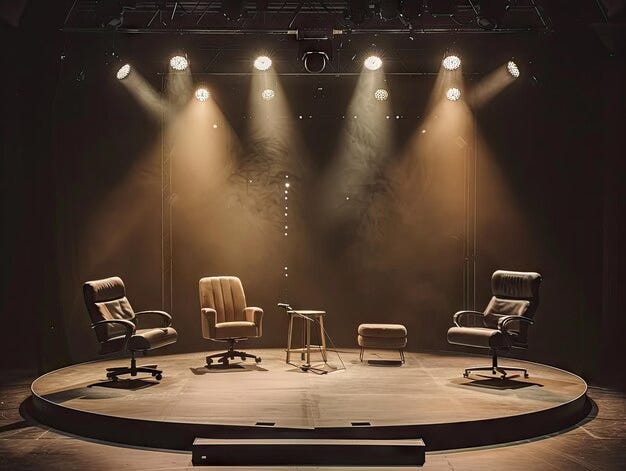“Dreadnought”
Her poems were known for being, among other things, short. His questions were long. Even the audience began to see the irony as she shuffled in her chair, almost rolled her tongue, almost checked her watch. She denied herself the punchline she had seen once from a touring professor, famous for his proclamations on the Middle East rather than his actual field of linguistics, who at the end of a long question from an audience member who must have rehearsed his moment in the mirror at home he was so long and winding and articulate and literate and in the way he fitted in his clauses and teased at digressions, a question so long that by the time the chap had gotten halfway through it was a challenge to remember the beginning, the professor had answered simply, Yes. Uproarious applause and laughter in the auditorium. Then, like now, the audience around her had been getting squeaky, and she had grown embarrassed for the questioner as people around him began to sigh and murmur. That was an off-campus event, and there were nearly two thousand people there, all come to hear a linguist talk about the devilishness of American foreign policy. Her interrogator went on, his eyes lit with the idea of having her on the rack. She thought about the most faded postcard on her bulletin board back home above her desk in Jack’s old room, the only note that never got replaced. It was from Lorna, thirty years ago from a trip to Mexico. It said, “For sale. Babies shoes. Used.” Eventually she answered a question that interested her rather than whatever one had been asked. She said, I always admired Hemingway. And as the interviewer raised his eyebrows, pleased with the contrariness of the old feminist, offering to do battle with her own side, she said, remembering a joke of Lorna’s, I admired that he stood up to write. That takes stamina, and he talked a lot about stamina. She looked out to the audience, to the spotlights and the halos, and she said, I’ve forgotten the question. That’s okay, the interviewer said, and he gently touched the knot of his khaki woollen tie. When it was over and the applause rose, she leaned to her host and said off-mic, how did I do? And he replied with a wet-lipped smile, Don’t worry about it, they’ll be glad just to have sat in the same room as you.
In the car on the way home, Dustin asked her why she was being so quiet, and she said, At what age does one remember to say no to these things? They stopped off for burgers at Culpeppers, the only two in there but for a girl in headphones reading Camus with her feet tucked under her. Dustin offered to take his wife’s coat but she declined and they sat in the brightness of the window in their furs saying nothing, accept when Dustin dropped mustard on his chin and she told him so. As with every tiny gesture, she had to fight the urge to write a poem about it.
Gary Raymond is a novelist, author, playwright, critic, and broadcaster. In 2012, he co-founded Wales Arts Review, was its editor for ten years. His latest book, Abandon All Hope: A Personal Journey Through the History of Welsh Literature is out now with Calon Books.




